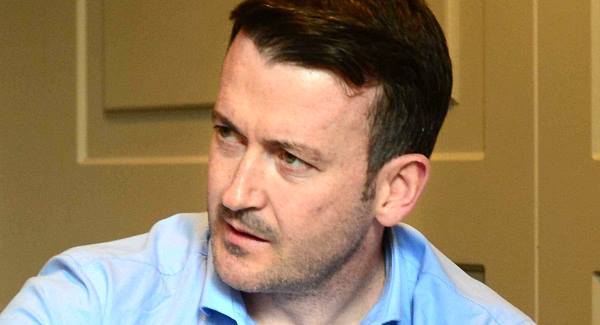Hurling hero Donal Óg Cusack has been denied planning permission to build his dream home on the outskirts of his home village in Cork, write Gordon Deegan.
The local authority branded him an “outsider”.

It invoked a contentious ‘locals-only’ policy by refusing Cusack planning permission to build a four-bed home about 1km from his home village of Cloyne.
Currently a coach with Clare’s senior hurlers, Cusack won three All-Irelands and five Munster titles with Cork during a decorated player career. He also won a county hurling title with Cloyne — the home village of hurling legend Christy Ring.
Cork County Council ruled Cusack has no ties to the “local rural area” at Knocknamadderee, Cloyne, and stated that his main connection is to the Cloyne urban area.
He is currently living at Ballinacurra, near Midleton, and is seeking to return to his home village.
The two-time All Star was raised on Chapel St, Cloyne.
The council states that the area in which Cusack has applied to build is outside the Cloyne settlement boundary. It is designated a “rural area under strong urban influence” where the development of new homes by “outsiders” is restricted.
In such areas, restrictions do not apply to persons who have lived in the area for more than seven years or, for example, farmers’ sons and daughters looking to build on family-owned land.
The council said to grant Cusack permission would be contrary to the aims and objectives of the County Development Plan.
The local authority also refused planning permission on the grounds that the proposal, along with existing developments, would contribute to an excessive density of development in a rural area and lead to demands for uneconomic provision of public services and community facilities.
However, Cusack has appealed the decision.
In support, John Hegarty of Cork City-based company Fourem Architects, stated that Cusack’s contribution to the community through the local GAA club is exceptional.
“His contribution can genuinely be demonstrated to have great positive effect on the creation of a local sustainable rural community.”
Mr Hegarty said the council’s interpretation “rejects the applicant’s real and strong ties to the local rural area and yet this tie could hardly be any stronger or contribute any more fully to the local community”
This story first appeared in the Irish Examiner.


